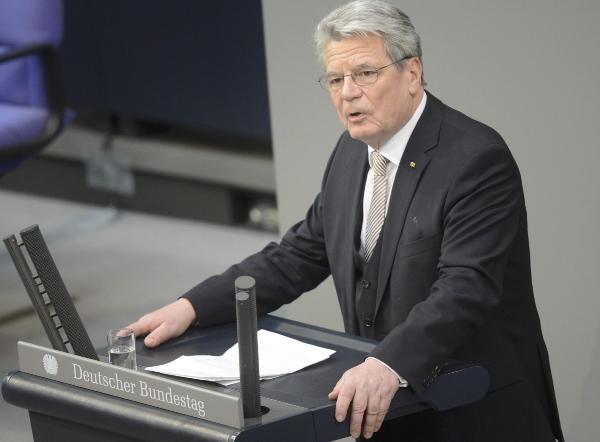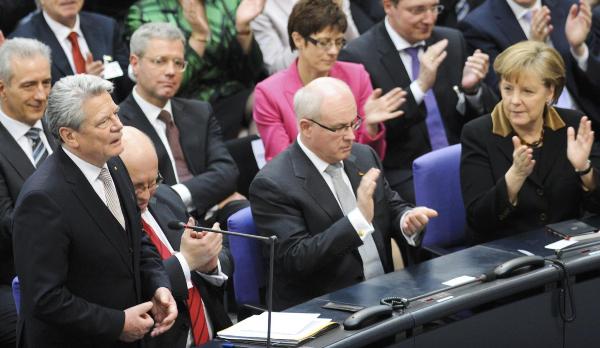
 |
|
Joachim Gauck makes a speech after he was elected German president at Germany's Federal Assembly in Berlin March 18, 2012. [Photo/Agencies] |
BERLIN - German lawmakers on Sunday elected former East German human rights activist Joachim Gauck as the country's new president.
The 72-year-old Gauck, backed by most major German parties, won an overwhelming majority, claiming 991 votes out of a total of 1,232, from a special assembly of German lawmakers and other dignitaries.
His main rival senior journalist Beate Klarsfeld, nominated by the Links Party, secured 126 votes, while Olaf Rose of the far-right NPD bagged only three votes. There were 108 abstentions.
Gauck's inauguration as the country's 11th president since the end of World War II at the parliament is scheduled for next Friday.
 |
|
Joachim Gauck receives applause after he was elected German president at Germany's Federal Assembly in Berlin March 18, 2012. [Photo/Agencies] |
He will also become the oldest head of state by the time of election in the history of the Federal Republic of Germany, replacing Christian Wulff, who himself took the reins from his predecessor Horst Koehler, after an uproar over comments Koehler made appearing to justify using the military to serve Germany's economic interests.
Wulff resigned earlier this year after it emerged that he had tried to stop revelations by Germany's most-read newspaper Bild in December 2011 of a personal loan on favorable terms in 2008. He was serving as state governor of the northern German state of Lower Saxony at the time.
Germany's president, who stands above party politics, holds a largely ceremonial role. The incumbent typically uses his moral authority to influence debates in the society and politics.
Gauck was once the candidate of the opposition Social Democrats and Greens for president in mid-2010. He was defeated by Wulff backed by Chancellor Angela Merkel at the time.
A recent survey conducted by the German television ARD showed some 80 percent of the respondents polled took Gauck as credible and trustworthy for the presidency.
However, 37 percent of the respondents said they were not sure if the former pastor was capable of addressing issues such as the eurozone debt crisis.